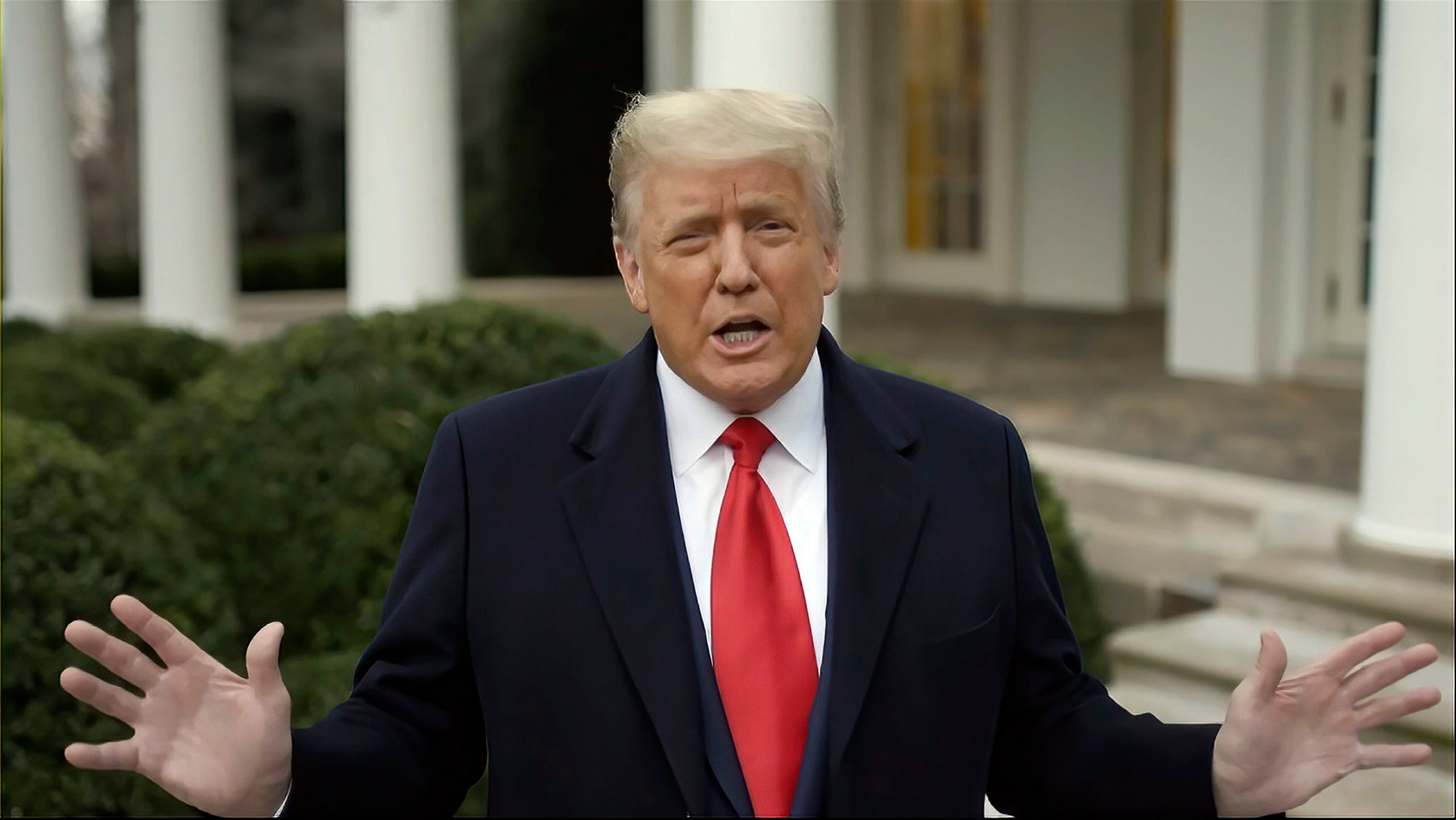-
A federal judge ruled the president doesn’t have “the divine right of kings to evade” criminal accountability.
-
Trump is also appealing a loss over whether his alleged acts were protected under the First Amendment.
Donald Trump is appealing a federal judge’s ruling that he isn’t protected by presidential immunity from criminal charges tied to his alleged interference in the 2020 election.
The former president filed the appeal Thursday along with a request for a pause in his criminal proceedings while the appeals court considers his arguments. Prosecutors oppose the pause request, Trump said. His trial in the case is currently scheduled to begin in March.
Trump is fighting charges brought by special counsel Jack Smith that could land him in prison for decades, including that he conspired to obstruct the process for certifying the election.
U.S. District Judge Tanya Chutkan rejected a series of arguments from Trump to have the case dismissed, such as that he can’t be prosecuted because his alleged actions were “at the heart of his official responsibilities as President.”
“Defendant’s four-year service as Commander in Chief did not bestow on him the divine right of kings to evade the criminal accountability that governs his fellow citizens,” Chutkan said in her Dec. 1 ruling.

President Donald Trump records a video statement on the afternoon of Jan. 6, 2021, from the Rose Garden at the White House in Washington. Trump’s … Show more
AP
Trump argued that his alleged statements about the administration of a federal election “unquestionably” fell within the scope of his official duties because presidents are duty-bound to defend themselves publicly and promote policy initiatives.
Chutkan said she didn’t need to address whether the alleged conduct targeted by the indictment falls within a president’s duties, because she concluded former presidents don’t have absolute immunity from federal criminal charges for acts committed in office.
Mounting criminal and civil cases
The charges against Trump are tied to a basic allegation that Trump spread claims of election fraud that he knew were false and pursued unlawful avenues to subvert the election results.
The former president has pleaded not guilty, and said in a court filing that he “emphatically denies the truth of any allegations in the indictment.”
Trump is also facing state criminal charges in Georgia tied to his alleged interference in the 2020 presidential election.
There, prosecutors have charged Trump and several others with participating in a multi-pronged conspiracy to overturn the results, including by interfering in Georgia’s election processes. Some co-defendants have already accepted plea deals in that case.
The election interference cases are only part of Trump’s legal woes. He is also facing a New York civil lawsuit over fraud allegations, a New York criminal case over allegedly paying hush money to adult film actress Stormy Daniels, and criminal charges in a Florida federal court for allegedly mishandling classified documents.
Free speech, double jeopardy arguments
Trump’s appeal in the federal election case also targets Chutkan’s rejection of several other arguments he raised for throwing out the indictment, including that his alleged acts were protected under the First Amendment.
It is “well established that the First Amendment does not protect speech that is used as an instrument of a crime,” Chutkan said.
Trump also argued that he is protected from the charges by “double jeopardy,” a constitutional protection from being prosecuted twice for the same crime.
He pointed to his acquittal by the U.S. Senate in impeachment proceedings over whether he incited an insurrection at the U.S. Capitol on Jan. 6, 2021, as presidential electoral count procedures were underway. The 57-43 Senate vote to convict fell short of the two-thirds majority requirement.
Chutkan said the indictment doesn’t violate double jeopardy principles because the impeachment didn’t threaten Trump with a criminal penalty, and it also dealt with a different charge.
The impeachment proceedings and this prosecution therefore did not ‘twice put’ Defendant ‘in jeopardy of life or limb’ for the ‘same offense,'” Chutkan wrote.
Trump is also appealing that decision.
Source :eu.usatoday.com/
